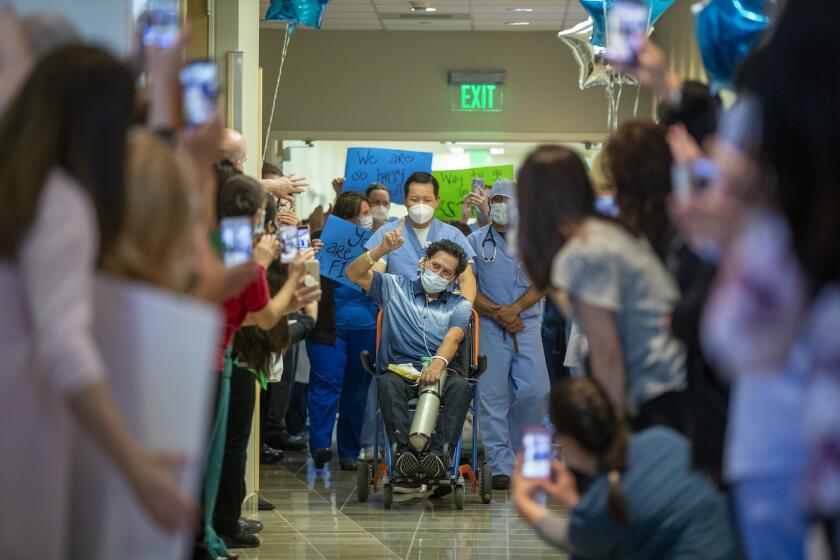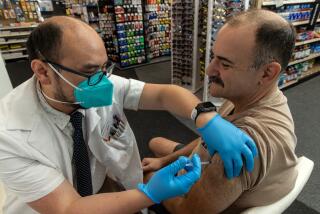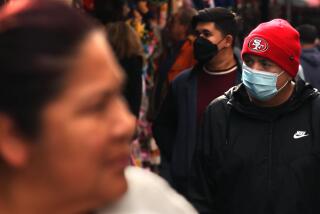When will California stay-at-home order end? Newsom says still too early to tell
- Share via
SACRAMENTO — Gov. Gavin Newsom repeated Wednesday that the duration of the coronavirus stay-at-home order is dependent on whether Californians continue to follow it and wear appropriate face coverings if they go out.
The governor said the state plans to expand testing, including serology tests and community surveillance testing, to better understand when “we get back to a new normalcy.”
“We have a team of people working on this 24/7,” Newsom said. “There’s no question on this that we haven’t asked ourselves on dozens and dozens of occasions. Everybody, not least of which myself as governor of the state of California, wants us to be able to affirmatively answer that question by giving you a specific date and time and in detail telling you how people are going to go back to work, back into their community.”
These are some of the unusual new scenes across the Southland during the coronavirus outbreak.
Newsom said the “curve is bending” in California, but warned people to remain indoors and not be tempted to break the order on Easter Sunday and as temperatures rise. The governor has said that Californians shouldn’t expect the order to be lifted anytime soon and that the state expects to experience a peak in COVID-19 infections in May.
As of Wednesday, 16,957 people have tested positive for COVID-19, Newsom said.
Hospitalizations from the virus increased 3.9% to 2,714 in the last day, and there was a 4.2% bump in patients receiving intensive care, to 1,154.
Deaths from coronavirus continued to grow across California, topping 480. Los Angeles County health officials on Wednesday confirmed 29 new coronavirus-linked deaths — the biggest daily jump of the pandemic — bringing the county’s total to 198 as the number of people testing positive for the illness surpassed 7,500.
County Public Health Department Director Barbara Ferrer said the mortality rate for the virus in the county has risen to 2.6%.
Still, California has not seen the death toll of hot spots such as New York, where more than 4,000 have died. And while the virus continues to spread rapidly in some places, including Los Angeles County, there are signs that its rate of growth could be slowing in parts of the Bay Area.
More to Read
Sign up for Essential California
The most important California stories and recommendations in your inbox every morning.
You may occasionally receive promotional content from the Los Angeles Times.












